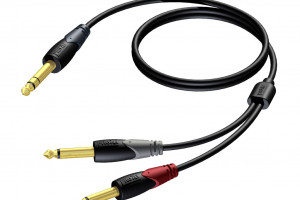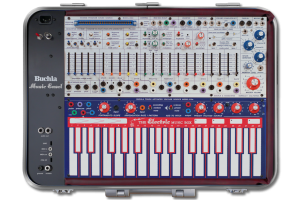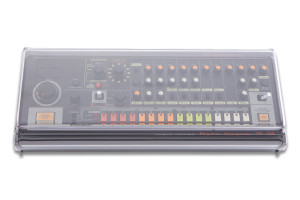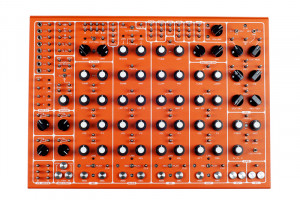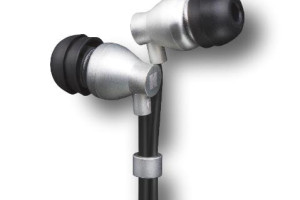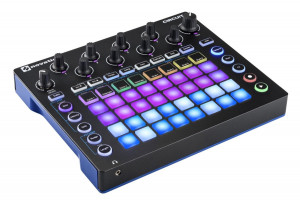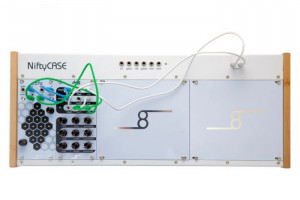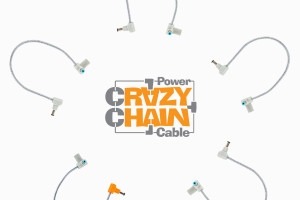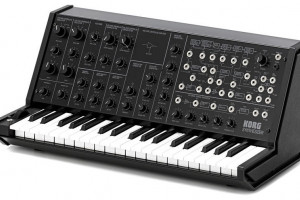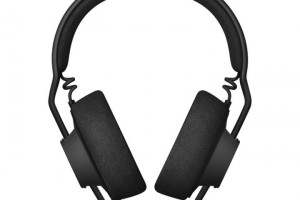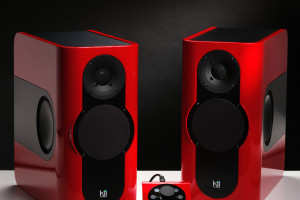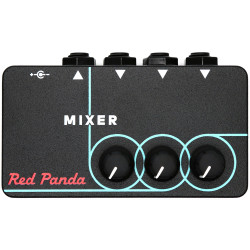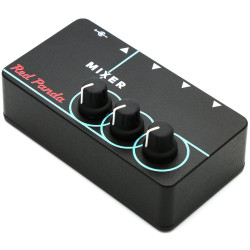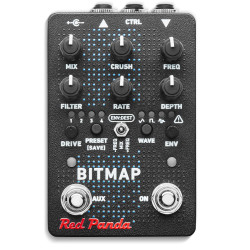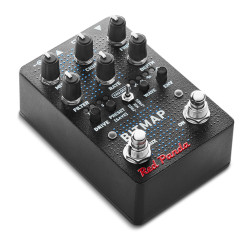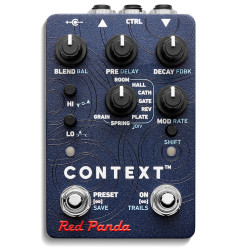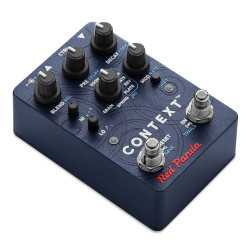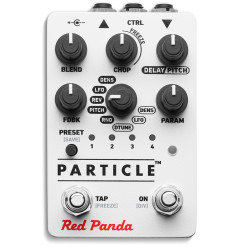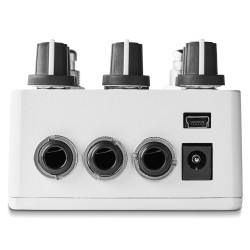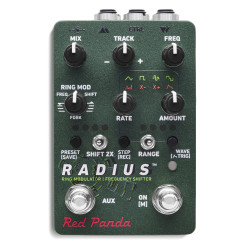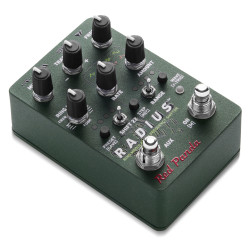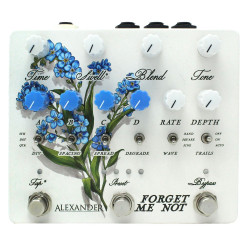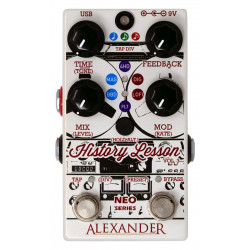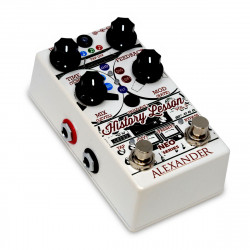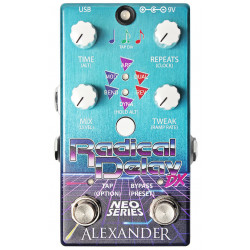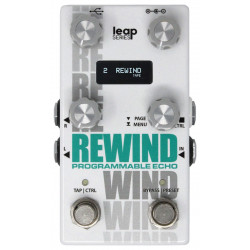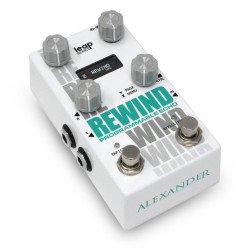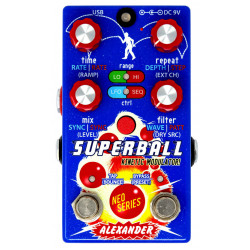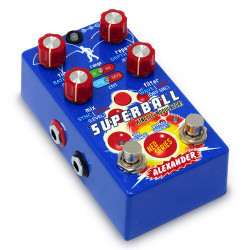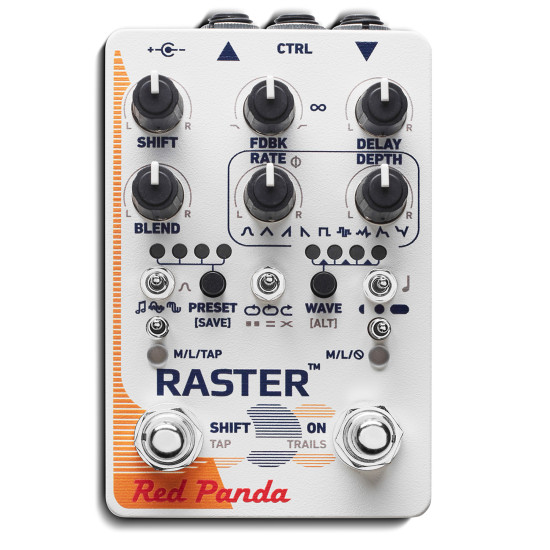
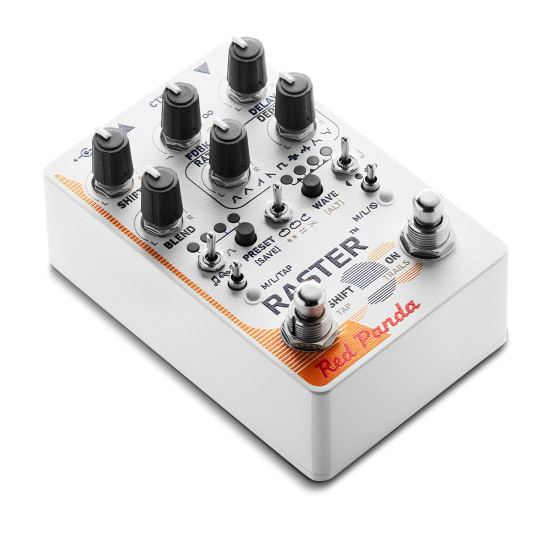
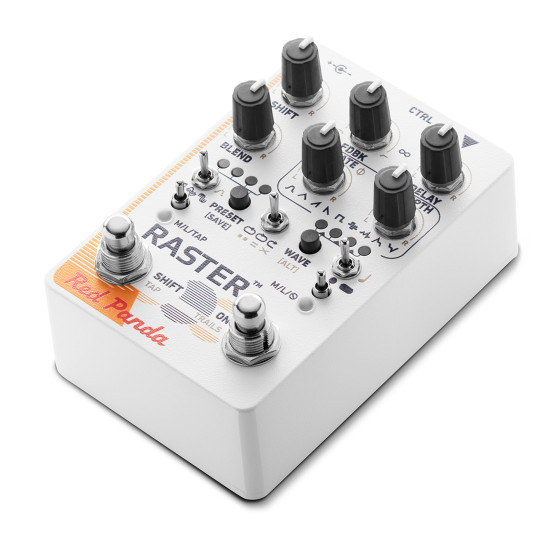
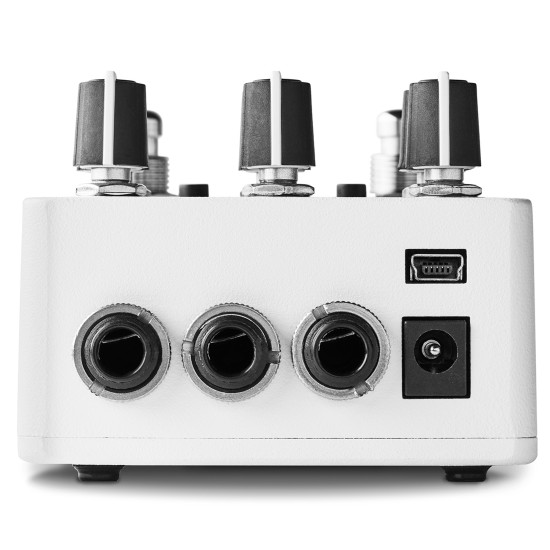




- Stock: In Stock
- Model: RED-PANDA-RASTER
More from this brand
The Raster™ is a digital delay with a pitch and frequency shifter integrated into the feedback loop. Forward or reverse delay can be shifted once or have continuously shifted repeats. It delivers a wide range of sounds including modulated and harmonized delays, reverse delays, chorus, arpeggios, infinite descents, chaotic self-oscillation, and continuously evolving soundscapes.
The core of the Raster™ is a clean delay with up to 1600 milliseconds of delay time. Three delay ranges allow you to precisely dial in resonant feedback sounds and instantly change delay time with rhythmic shifts. The feedback control has infinite repeats at 3 o’clock and chaotic, textured feedback loops at higher levels. Knob responses are carefully tuned for exploration of self-oscillation and feedback on the verge of blowing up. A tone control sweeps from dark analog-style repeats to digital clarity and emphasizes the attack at higher settings. The left and right delay times can be set as a ratio, so a single knob changes both in sync, or offset by milliseconds for movement and widening (Haas Effect). The two delay channels can be arranged in series, parallel or ping pong.
Pitch shifting repeats up or down in semitone steps creates tempo-synced arpeggios and alien organ sounds. The detune setting can dial in micro pitch shifts and chorused repeats. The left and right channels can be shifted by the same amount, a ratio, or opposite directions. At subtle settings, repeats evolve in a way that sounds natural, but different from analog delays.
Beyond pitch shifting, a combination phase/frequency shifter creates subtle evolving repeats, dissonant harmonies, and barber pole flanging. It can be pushed to extremes for ring modulation and inharmonic shifted delays that distort and break apart.
The Raster’s modulation section has seven waveforms that can be assigned to delay time, pitch shift, or effect level (for tremolo). There are two random waveforms for glitchy pitch jumps, wow and flutter, and broken tape deck effects. Envelope and inverse envelope enable dynamic flanging and pitch bent delays. Stereo controls adjust the modulation amount and phase between channels, for subtle shifts or swirling psychedelic washes.
Capable of extreme sonic mayhem, the Raster can also be used with restraint to add unique character to your sound.
The Raster 2 is performance friendly, with 6 knobs and 9 switches. The original Raster was praised for its knob response and immediacy, and the Raster 2 maintains that simplicity while adding flexible modulation and extensive stereo functionality. Alternate knob settings are related to the primary knob function, labeled, and off at the center position. Both footswitches can be latching or momentary, for instant pitch jumps or quick blasts of echo. The bypass switch can also mute the output in bypass while always listening, to catch, repeat, and manipulate what you just played.
While designing the Raster 2, we wanted to enable as many classic rack mount digital delay tricks as possible while keeping the fast and intuitive control that made the original Raster so fun to use. Instead of multiple modes with generic knob names, all of the parameters are always available, so you can mix and match different effects and explore new sounds in between.
Features
- 1600 ms stereo delay time in three ranges
- 3200 ms forward delay available via editor
- Micro pitch shifting and detuning
- Tuned pitch shifting, +/- 12 semitones
- Phase and frequency shifting
- Repeats shifted once or continuously
- Reverse delay
- 7 modulation waveforms, envelope, and reverse envelope
- Modulation can be assigned to delay, pitch, or amplitude
- Most parameters have left/right controls for stereo delay
- Parallel, series, or ping pong structure
- Tone control
- Stereo input/output (TRS)
- Soft touch bypass switch with selectable momentary, latching, or mute output
- Shift footswitch momentary, latching, or assignable to tap tempo
- Assignable expression pedal, remote switch, remote tap, or MIDI port
- Full MIDI implementation with additional parameters (USB or TRS)
- MIDI clock synchronization
- Presets (4 on front, 127 via MIDI)
- Web-based editor for editing presets and accessing hidden parameters
Designed and assembled in USA. Requires a 9V 250 mA center negative power supply (not included).
-285x169.png)
